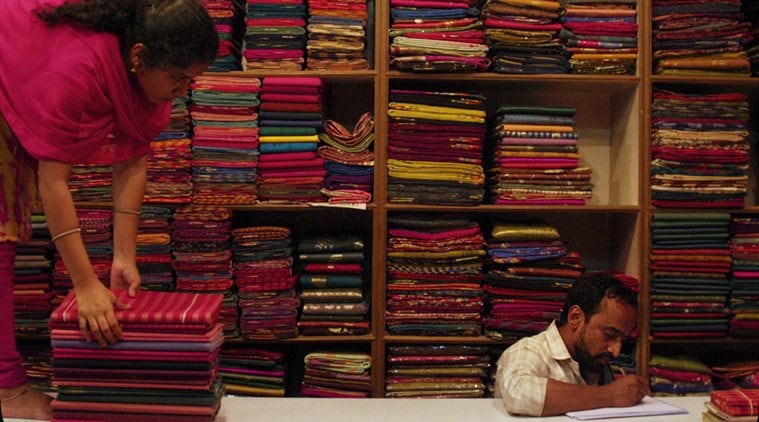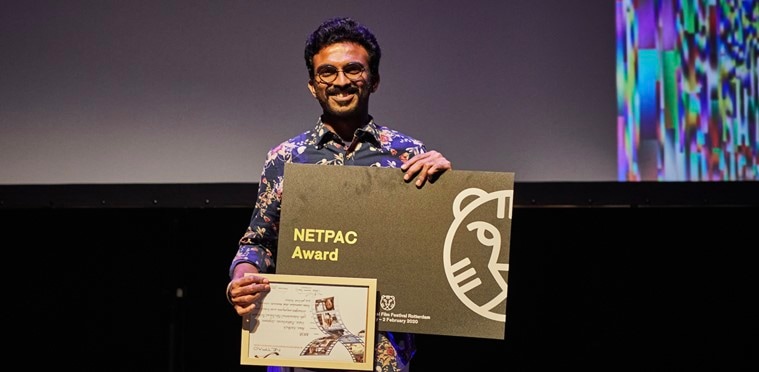 Nasir will stream at We Are One global festival.
Nasir will stream at We Are One global festival.
The mark of a good film is not just in the way it sets up a dialogue with the viewer, but also in just how much it stays with you: on both those scores, Arun Karthick’s Nasir (Tamil with English subtitles), based on a short story by Dilip Kumar, is right up there. It’s been more than two weeks since I’ve seen the film, and I can’t stop thinking about it.
The film opens with Nasir, a salesman in a garment shop, coming awake. He has a mattress on the floor. On the bed, beside him, is the fuzzy outline of a young man, playing with his fingers: we know why a little while later. Morning sounds accompany the routine Nasir follows as he gets ready for his day. In a few deft sketches, the film creates an outline of a man and his life, and invites you to walk alongside as it fills it in. And the journey, 85 minutes, both fills you up, and leaves you shattered: it is the story of one man, yes, but it is also the story of a society, and a nation, in a brilliant meshing of the personal and the political.
 Nasir is helmed by Arun Karthick.
Nasir is helmed by Arun Karthick.
A chat with the 28-year-old Coimbatore-based Karthick, whose second feature this is, reveals the filmmaker’s intense immersion in the world around him. He stayed in the Muslim ghetto where the film is set, for over two years, learning its rhythms, knowing exactly which turns the narrow ‘gallis’ take, the push and pull of the people coming in and out. A riot which happened a few years back and resulted in the destruction of many shops in the area, set Karthick thinking. And once he read the story, which used the second person ‘you’, he found what he was looking for. ‘I wanted the audience to become the character; the film is about Nasir, but it is also about you, and your story.’ This clear-eyed vision is what blew away Mathivanan Rajendran, the film’s chief producer, and convinced him to come on board with the project.
The beating heart of the film is, of course, Nasir. Theatre veteran Koumarane Valavane sinks into the character and becomes Nasir, a man who loves his wife (in a brief appearance, Sudha Ranganthan leaves an impact), feels no shame in missing her when she’s not there. There’s empathy in the interaction he has with his developmentally challenged adoptive son. And an understanding of how things have been, in his recognition of the casual bigotry inherent in the Hindu owner of the shop he’s spent so many years working in. The ‘maalik’ is not being cruel; he is just being himself.
 Theatre veteran Koumarane Valavane sinks into the character and becomes Nasir.
Theatre veteran Koumarane Valavane sinks into the character and becomes Nasir.
Nasir is also aware of the rising polarisation around him: there are loudspeakers and processions and shouts of ‘Jai Sri Ram’ as he goes along. But what is striking is in the way he hears it without any noticeable fear: as far as Nasir is concerned, it is what it is. His ‘namaaz time’, the only break he gets in his long working day, is for his religious self, but his essential humaneness makes him a complete man.
And that’s what you are left with in the end, which you can almost see coming, and you don’t really want to see. Closing your eyes in horror and sorrow is what we instinctively veer towards. But that’s not an option we should exercise, because Nasir’s life matters. Watch it.
(The film, which premiered at the Rotterdam International Film Festival earlier this year, will stream at We Are One online global festival, as part of the Indian slate curated by MAMI, on June 6, YouTube).